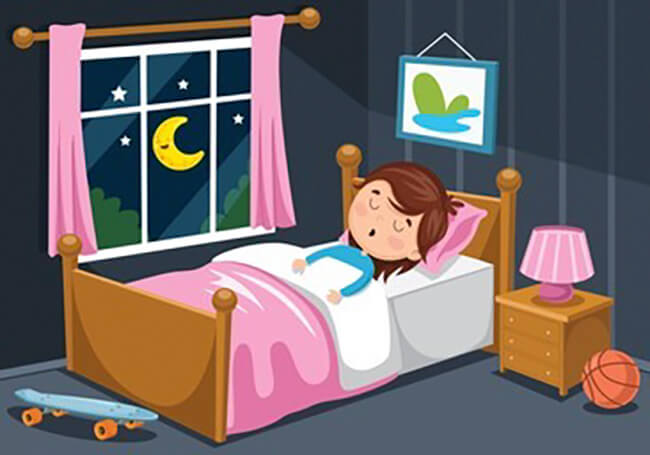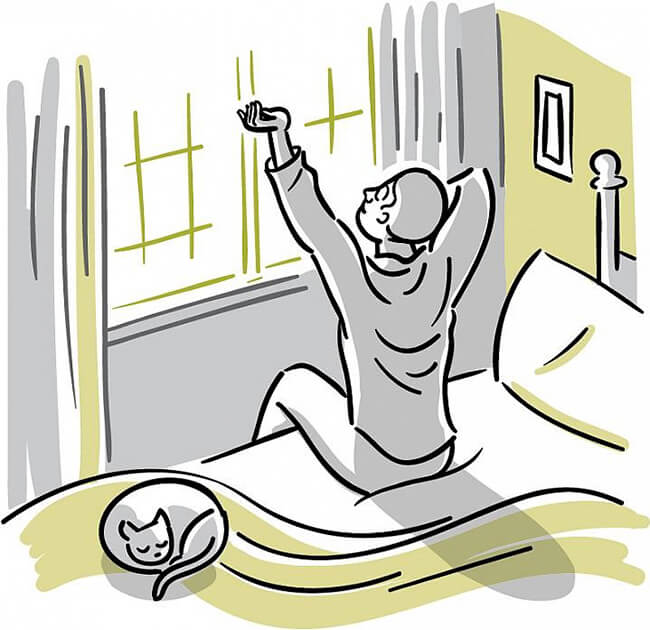Sleep and rest are essential aspects of health and well-being, influencing the overall health of individuals and, specifically, adolescents. In today’s modern world, many parents express concerns about sleep disorders in adolescents. Proper sleep hygiene can help improve the quality of sleep for adolescents.

1. What Is Sleep Hygiene?
Sleep hygiene involves creating the right environment and habits before bedtime, serving as the foundation for higher-quality sleep and better physical and mental health.
2. Signs of Sleep Disorders
Adolescents may exhibit nighttime signs such as:
- Difficulty falling asleep (spending a long time in bed before falling asleep).
- Frequent awakenings during the night, struggling to fall back asleep.
- Feeling tired, drowsy, or sleepy during the day, especially at school.
3. Factors Influencing Sleep
Several factors can impact sleep:
- Environment: Extreme room temperatures, bright lights, or loud noises in the bedroom, lack of cleanliness, tidiness, or an inappropriate bed location.
- Unhealthy Habits Before Bed: Consuming heavy or light meals, or beverages with stimulants like coffee, milk tea, or certain soft drinks. Watching intense or scary movies or playing stressful video games before bedtime.
- Emotional State: Feelings of sadness, stress, anxiety, or fear can affect sleep.
- Inconsistent Sleep Schedule: Napping for extended periods during the day, going to bed too early or too late, or sleeping in.
- Medical Issues: Particularly those causing pain, difficulty breathing, or frequent urination.
4. How to Maintain Proper Sleep Hygiene for Adolescents
- Establish a Consistent Sleep Schedule: Go to bed and wake up at the same time every day.
- Stay in Bed if Unable to Sleep: If experiencing insomnia, remain in bed for no more than the average time it takes to fall asleep.
- Limit Daytime Naps: Avoid excessive daytime napping.
- Avoid Stimulants: Do not consume stimulants, especially in the afternoon and evening.
- Eliminate Unhealthy Habits: Avoid engaging in habits that disrupt sleep.
- Reduce Screen Time: Avoid electronic devices for at least an hour before bedtime.
- Moderate Evening Meals : Avoid heavy, overly indulgent meals or large snacks before bedtime.
- Regular Exercise : Engage in regular morning or afternoon exercise.

- Relaxation Techniques : Practice gentle relaxation and listen to white noise before sleep.

- Optimal Sleep Environment : Ensure a quiet, well-ventilated, dimly lit, and comfortable bedroom.
- Keep a Sleep Journal : Maintain a sleep log documenting total sleep hours, nighttime awakenings, wake-up times, daytime napping, and the time spent in bed before falling asleep.

Parents should acquire fundamental knowledge of proper sleep hygiene to help adolescents improve the quality of their sleep. Prolonged sleep disorders in adolescents can affect their psychological well-being and development, potentially leading to other health issues. Therefore, parents should seek medical advice and treatment for their adolescents if they experience prolonged sleep disturbances.


